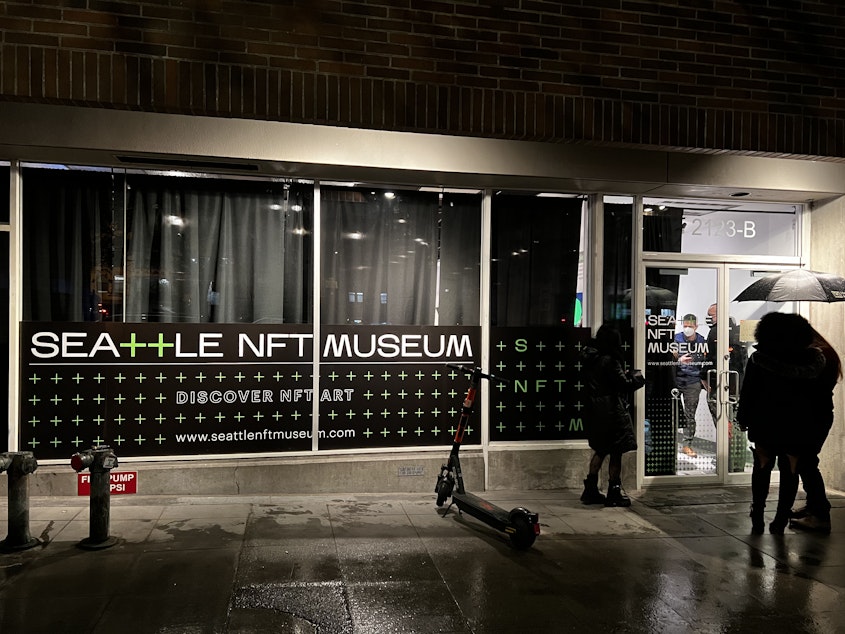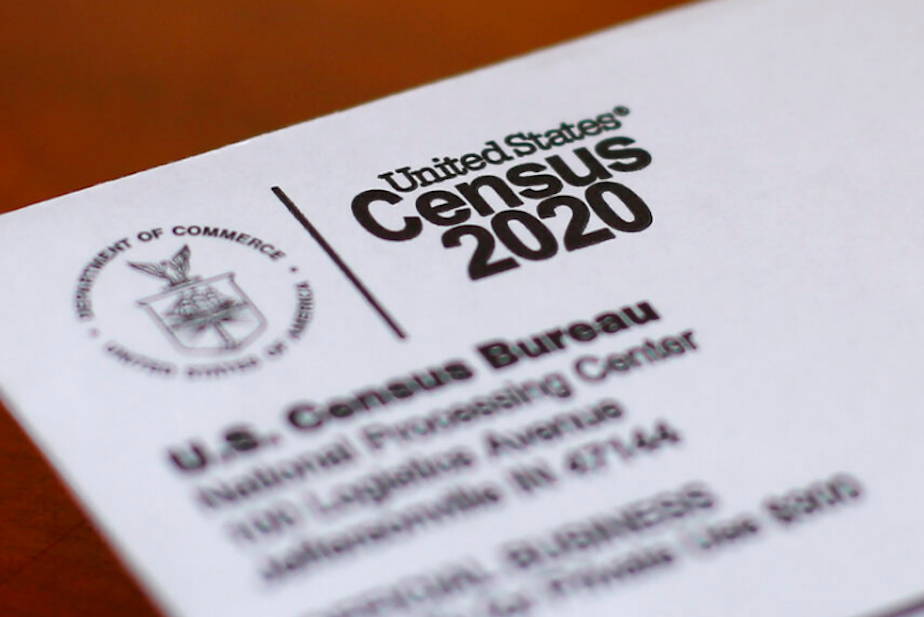Big tech and the war in Ukraine: Today So Far

- The U.S. military might not be involved with the war in Ukraine, but big tech is leveraging its influence to put pressure on Russia.
- Amazon accused of lying to Congress.
- NPR's Tiny Desk contests seeks new musicians (that means you Pacific Northwest!)
This post originally appeared in KUOW's Today So Far newsletter for March 10, 2022.
When the United States entered WWII, the nation called upon one of its most influential industries for help — typewriters. Smith-Corona and Underwood converted their factories to make rifles. Royal started producing airplane parts. But the war effort still heavily relied upon typewriters for communication. The government started a program to buy Americans' private typewriters, which led to a general shortage of the machines. To put this in context, typewriters during this time were the equivalent of your modern laptop, smartphone, and social media. Information traveled as fast as a click and clack, and this one device was pivotal at this time. Despite U.S. industry dramatically evolving over the decades, it seems that things haven't changed much.
Fast forward to 2022, communication has become more complex, and global. The U.S. military might not be involved with the war in Ukraine, but big tech is leveraging its influence to put pressure on Russia. Microsoft is helping Ukraine fend off cyberattacks, such as the recent FoxBlade malware that Russia aimed at Ukrainian computers. It's also combatting Russian disinformation. Apple and Google have also started barring Russian media from using their platforms to spread disinformation.
Though despite the role that companies have played during tense times in the past, the current situation is very unusual for a private company like Microsoft, as Seattle University School of Law professor Mark Chinen explained to Seattle Now this morning.
"This is enormously powerful. Even if all Microsoft is doing is detecting these threats, sharing information, intelligence, and advising the Ukrainian government about steps it can take to ward off these attacks, that's an extreme level of involvement. It speaks to the fact that even though Microsoft isn't a country or a government, Microsoft and other large tech companies have enormous influence because of the kinds of connections ... they have with agencies that are perhaps even more engaged in responding to this crisis.”
Russia's efforts have taken another hit from a U.S. tech giant this week. Lumen (the same company that named the Seahawks' stadium) is pulling the plug on its internet network in Russia. It's a big deal, as Sebastian Moss, editor at DatacenterDynamics, told KUOW's Soundside. Lumen is an internet backbone company, which means other internet services and companies are built on, and use, their system. It's like Lumen builds and owns all the roads we drive on. And now it's saying Russia can't drive anymore.
Sponsored
"And they control the traffic on that, and companies pay to access those routes and connect different countries," Moss said. "...they are the largest international transit provider in Russia. So prior to this Ukraine war, more data was going through Lumen out from Russia and to Russia than any other company."
Back here in the U.S., another giant tech company is making headlines for entirely different reasons. Amazon is accused of lying to Congress. Amazon told Congress that it didn't use data from its third-party sellers to compete with them. But a bipartisan House Judiciary Committee says it's not buying it. It is accusing Amazon of potential "criminal activity” via a letter that was signed by Washington State Rep. Pramila Jayapal and Florida Rep. Matt Gaetz (how often are those names gonna appear on the same letter?). Amazon says "there’s no factual basis for this." KUOW's Joshua McNichols has the full story here.
Finally, this is a shout out to Seattle-area musicians. Right now, NPR's Tiny Desk is accepting submissions for its eighth Tiny Desk contest, which seeks out unsigned musicians. They're asking songwriters to submit a video of themselves performing an original song behind the desk of their choosing. Winners will get to play behind the official NPR Tiny Desk for a concert of their own. Artists must submit a song by March 14, so the deadline is fast approaching. Now, I know the Northwest can bring it. And I know there is plenty of unsigned talent around here. Also, I would very much like to hype some local talent. So if you have an original song, and you are unsigned, hop to it!
AS SEEN ON KUOW

Located in Belltown, the Seattle NFT Museum aims to showcase NFTs, their creators, and offers educational components to help the public understand just what this new technology is. (Alec Cowen / KUOW)
DID YOU KNOW
Robert Montgomery was raised in his father's Seattle typewriter shop through the '20s and '30s, learning to repair the machines before being called to fight in WWII. However, whatever military base he showed up at, word got around about his repair skills. Officials would take away his rifle and send him to a shop. This happened again and again. Montgomery spent the war repairing typewriters through England, France, and into Berlin. Communication during the war was carried out on the machines he kept clacking.
At first, Montgomery never intended to follow in his father's footsteps. But after the war, he decided not to fight the demand and started a shop of his own in Bremerton where he repaired typewriters for decades. As computers became more prominent, the Bremerton Office Machine Company became one of the only places in the region that typewriter enthusiasts could get their machines maintained (I brought him at least three of my own). At the age of 94, Montgomery decided it was time to retire. He passed away a couple years ago. But there remains plenty of nerds like me out there who use these outdated machines. Thankfully, Montgomery's legacy continues and Bremerton Office Machine Company is still up and running, under new ownership.
ALSO ON OUR MINDS

The 2020 census had big undercounts of Black people, Latinos and Native Americans
Black people, Latinos and Native Americans were left out of the 2020 census at rates higher than a decade earlier, according to estimates from a report the U.S. Census Bureau released Thursday.

